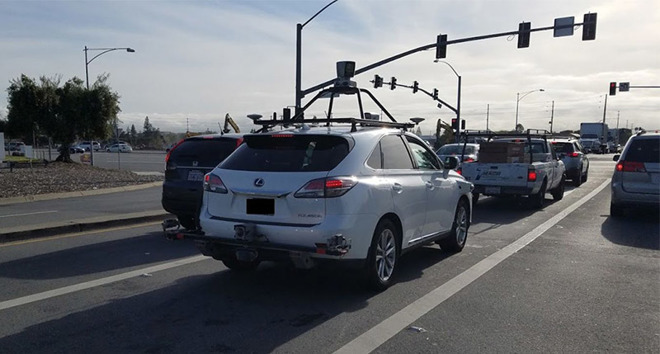Democrats and Republicans squared off on Tuesday during a U.S. House Energy and Commerce subcommittee meeting on self-driving cars, contesting policies which could ultimately affect both the testing and launch of products being developed by Apple.
Republicans are proposing a draft package of 14 bills which would, for instance, let the National Highway Traffic Safety Administration exempt up to 100,000 vehicles from federal safety rules barring cars without human controls, Reuters said. More controversially, states would be blocked from setting their own rules on self-driving vehicles, and the NHTSA would no longer assign pre-approval for related technologies.
Representative Robert Latta (R-OH) argued that the country "cannot have cars that stop at state lines," and that the changes would make sure "industry can innovate." Corporations like Alphabet, GM, and Tesla have been lobbying Congress to stop state rules that might affect their self-driving projects.
Indeed during today's hearing, two trade associations expressed worries about the idea of a "patchwork" of self-driving regulations, inconsistent from one state to the next.
Republicans also argued for the importance of competing with other countries, and the potential for reducing road fatalities.
Representative Frank Pallone (D-NJ) cautioned that the Republican legislation would prevent states from setting rules without a guarantee the NHTSA would have its own. Multiple Democrats pointed out that President Donald Trump has yet to even nominate a candidate to run the NHTSA, which is missing other senior leaders as well.
Apple is currently testing just a handful of modified vehicles on California roads. In theory the proposed bills would make it easier to test there and elsewhere, as well as explore more radical concepts.
Still less certain is the direction of Apple's efforts, known internally as "Project Titan." While it could just offer a platform to existing automakers, the company is thought to have begun with the goal of its own car design. Another possibility is some sort of involvement in a ridesharing or ridehailing service, especially given close ties with China's Didi Chuxing.
Latta said he's hoping the committee will approve a bipartisan version of the bill package by the end of July.
Note: Due to the political nature of this article, comments have been disabled. Appropriate discussion should be directed to our "Political Outsider" forum.
 Roger Fingas
Roger Fingas








 Marko Zivkovic
Marko Zivkovic
 Christine McKee
Christine McKee
 Andrew Orr
Andrew Orr
 Andrew O'Hara
Andrew O'Hara
 William Gallagher
William Gallagher

 Mike Wuerthele
Mike Wuerthele
 Bon Adamson
Bon Adamson



-m.jpg)


